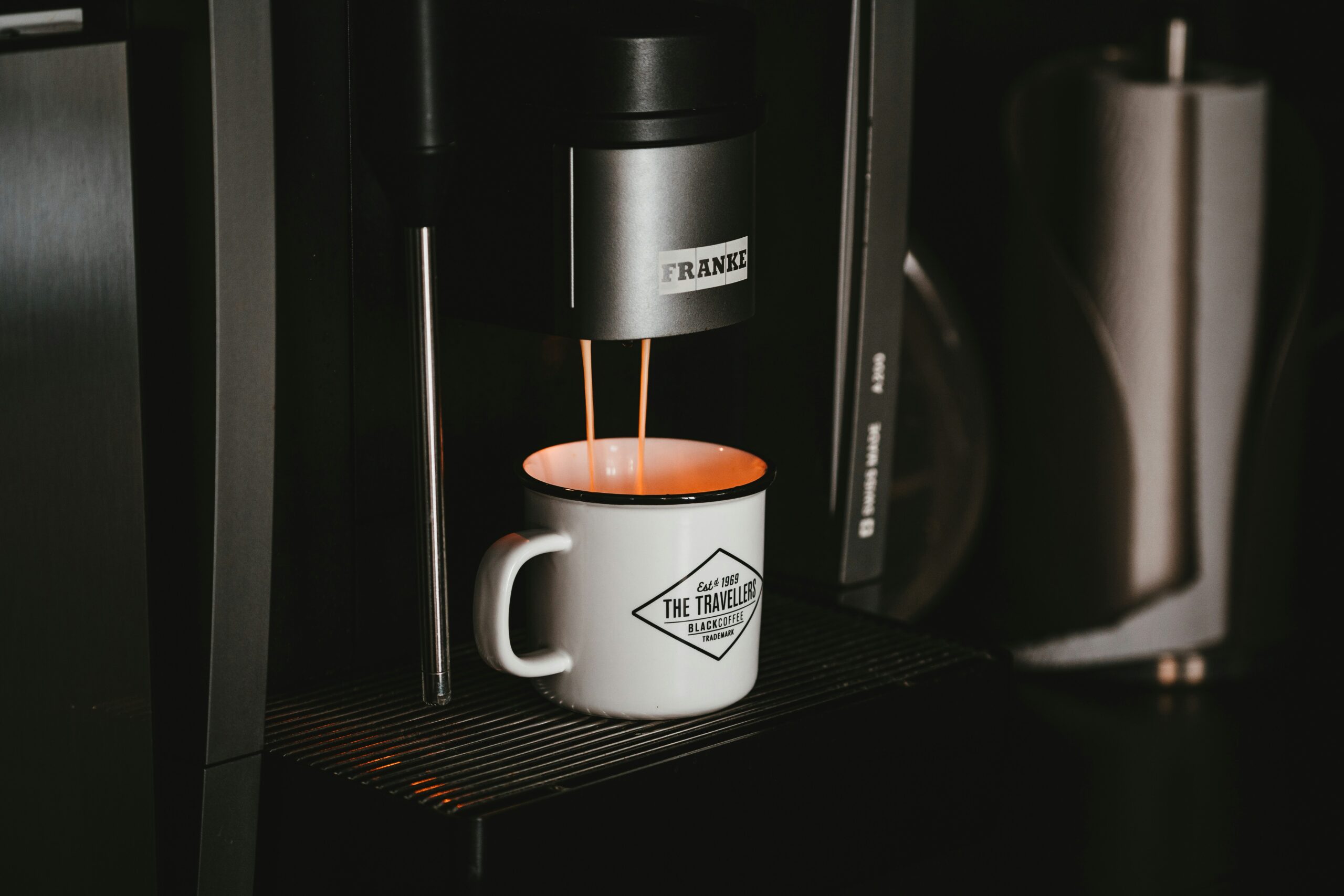Coffee Equipment 101: A Beginner’s Guide to Building Your Coffee Shop
Are you a coffee lover dreaming of opening your own coffee shop? Well, you’ve come to the right place! In this beginner’s guide, we will walk you through the essentials of coffee equipment, helping you build the perfect setup for your coffee shop. From espresso machines to grinders and brewers, we’ll cover it all, ensuring you have a thorough understanding of the tools necessary to make the perfect cup of joe.
At Al-Mohtaseb, we understand the importance of quality coffee equipment in delivering a memorable coffee experience. That’s why we’re here to provide you with expert advice and guidance on selecting the right equipment that fits your budget and meets your specific needs. Whether you’re starting from scratch or looking to upgrade your existing setup, this guide will equip you with the knowledge you need to make informed decisions.
Join us as we dive into the world of coffee equipment, where we’ll demystify the jargon, explore different options, and empower you to create an inviting coffee shop with a top-notch coffee lineup. Let’s get started on your journey to coffee shop success!
Essential Coffee Equipment for a Coffee Shop
When it comes to building a successful coffee shop, having the right equipment is crucial. Here are the essential pieces of coffee equipment you’ll need to consider:
1. Choosing the Right Espresso Machine
An espresso machine is the heart of any coffee shop. It’s important to choose one that suits your needs and budget. There are three main types of espresso machines: manual, semi-automatic, and fully automatic.
Manual machines require the most skill and effort, as they require you to control the brewing process manually. Semi-automatic machines offer more control but still have automated features. Fully automatic machines do most of the work for you, making them a great choice for beginners.
When selecting an espresso machine, consider factors such as boiler type, group head configuration, and temperature stability. It’s also important to choose a machine with a good reputation for durability and reliability.
We highly recommend reading ‘Choosing the Perfect Espresso Machine: A Deep Dive into Brands, Boiler Types, and Reliability’, as it dives deep into the best espresso machines on the market.
2. Selecting the Perfect Coffee Grinder
A high-quality coffee grinder is essential for achieving a consistent grind size, which is crucial for extracting the best flavor from your coffee beans. There are two main types of grinders: blade grinders and burr grinders.
Blade grinders are more affordable but tend to produce an inconsistent grind. Burr grinders, on the other hand, offer more precision and control over the grind size. They are available in both flat and conical burr configurations, each with its advantages.
Consider factors such as grind size adjustment, grind speed, and durability when selecting a coffee grinder for your shop. Investing in a good quality grinder will ensure that your coffee tastes consistently delicious.
Need a Tailored Solution?
We’ve got you covered. Unlock the full potential of your coffee shop with our expert guidance. Schedule a complimentary consultation with one of our coffee equipment specialists today, and we’ll assist you in finding the perfect tools and accessories to elevate your coffee shop experience.
3. Understanding the Importance of Water Filtration
Water quality plays a significant role in the taste of your coffee. Poor water quality can negatively impact the flavor and aroma of your brews. That’s why investing in a water filtration system is essential.
Water filtration systems remove impurities such as chlorine, minerals, and sediment, ensuring that your coffee tastes clean and balanced. There are various types of water filtration systems available, including activated carbon filters, reverse osmosis systems, and water softeners.
Consider factors such as water hardness, filtration capacity, and maintenance requirements when choosing a water filtration system for your coffee shop. Testing your water and consulting with a water filtration expert can help you determine the best solution for your specific needs.
Other Important Equipment to Consider
Opening a coffee shop involves more than just perfecting your espresso; it’s about creating a space where every detail contributes to the ambiance and efficiency of service. Among the critical pieces of equipment, refrigeration stands out as a cornerstone for storing perishables like milk, cream, and food items. Investing in high-quality refrigeration can significantly impact the freshness of your offerings and the overall operation of your café.
In the world of coffee shops where the summer months can spike the demand for cold beverages, especially here in Saudi Arabia, having a reliable ice machine is indispensable for crafting the perfect iced coffee or cold brew. Similarly, blenders are vital for expanding your menu to include smoothies and blended ice drinks, appealing to a broader audience. These pieces of equipment should not be an afterthought, as their quality and durability can affect your service speed and drink quality.
Additionally, the backend operations of a coffee shop require just as much attention, with ovens and toasters enabling the inclusion of a variety of food items, from pastries to heartier sandwich options. Dishwashers play a crucial role in maintaining hygiene and ensuring a quick turnaround of clean dishes and utensils. Effective shelving and storage units are the backbone of an organization, leading to smoother operations, while display cases not only keep food items fresh but also serve as a visual enticement for customers.
Exploring Different Brewing Methods
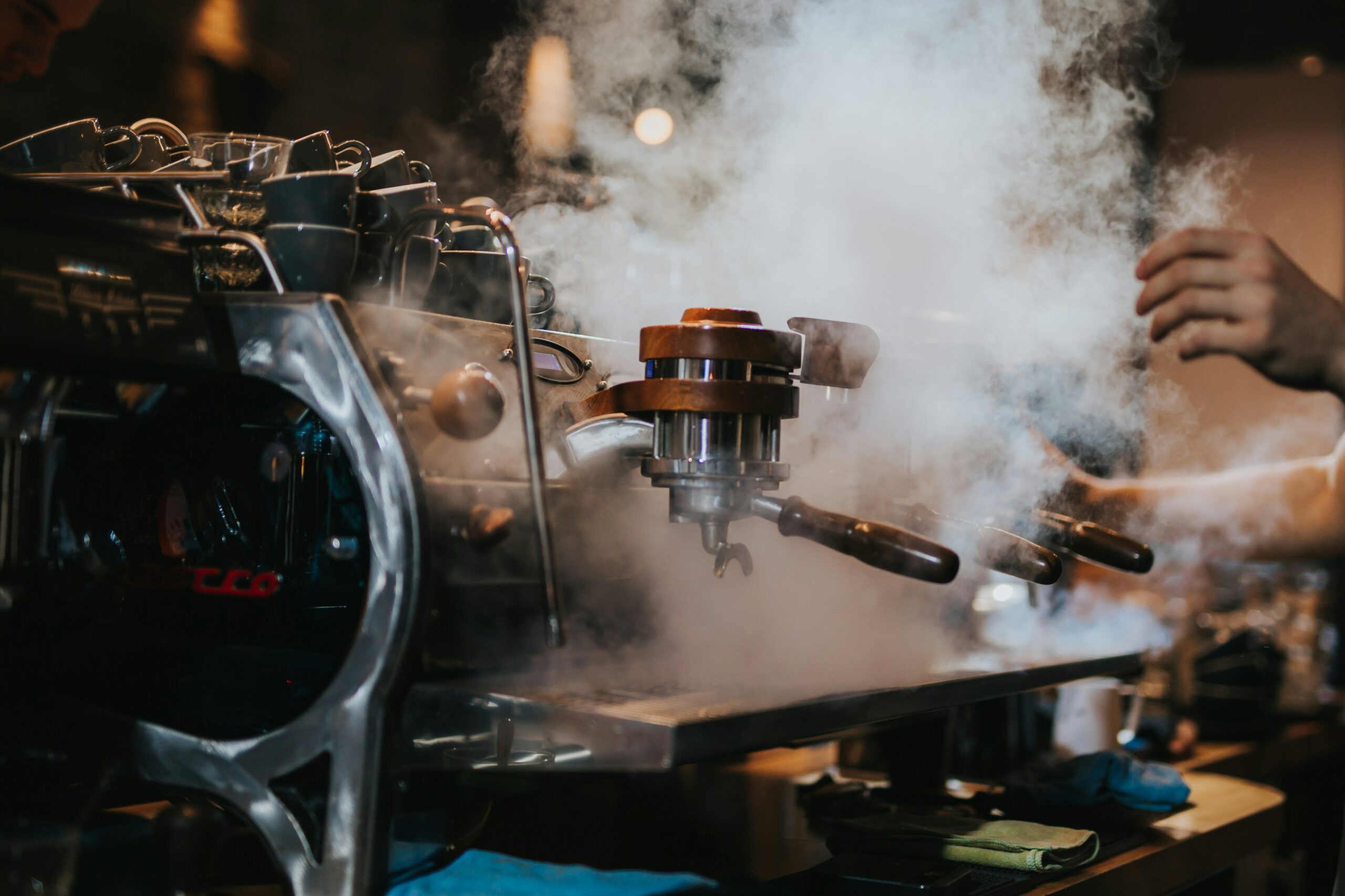 Apart from espresso, offering a variety of brewing methods can attract a wider range of customers. Here are some popular brewing methods to consider:
Apart from espresso, offering a variety of brewing methods can attract a wider range of customers. Here are some popular brewing methods to consider:
1. Pour Over
Pour-over brewing involves manually pouring hot water over coffee grounds in a filter. This method allows for precise control over brewing time and water flow, resulting in a clean and flavorful cup of coffee. Popular pour-over devices include the Hario V60, Chemex, and Kalita Wave.
2. French Press
The French press is a classic brewing method that produces a full-bodied and rich cup of coffee. It involves steeping coffee grounds in hot water and then pressing a plunger to separate the grounds from the liquid. French presses come in various sizes and materials, including glass, stainless steel, and ceramic.
3. Aeropress
The Aeropress is a versatile brewing device that allows for quick and easy brewing. It uses air pressure to extract flavors from the coffee grounds, resulting in a smooth and clean cup of coffee. The Aeropress is portable and perfect for on-the-go coffee enthusiasts.
4. Cold Brew
Cold brew is a popular method for brewing coffee with a smooth and less acidic flavor profile. It involves steeping coffee grounds in cold water for an extended period, usually overnight. Cold brew is served over ice and can be customized with milk, sweeteners, or flavorings.
Offering a variety of brewing methods allows your customers to explore different flavor profiles and find their preferred coffee style. It also adds an element of excitement and uniqueness to your coffee shop.
Essential Tools and Accessories for a Coffee Shop
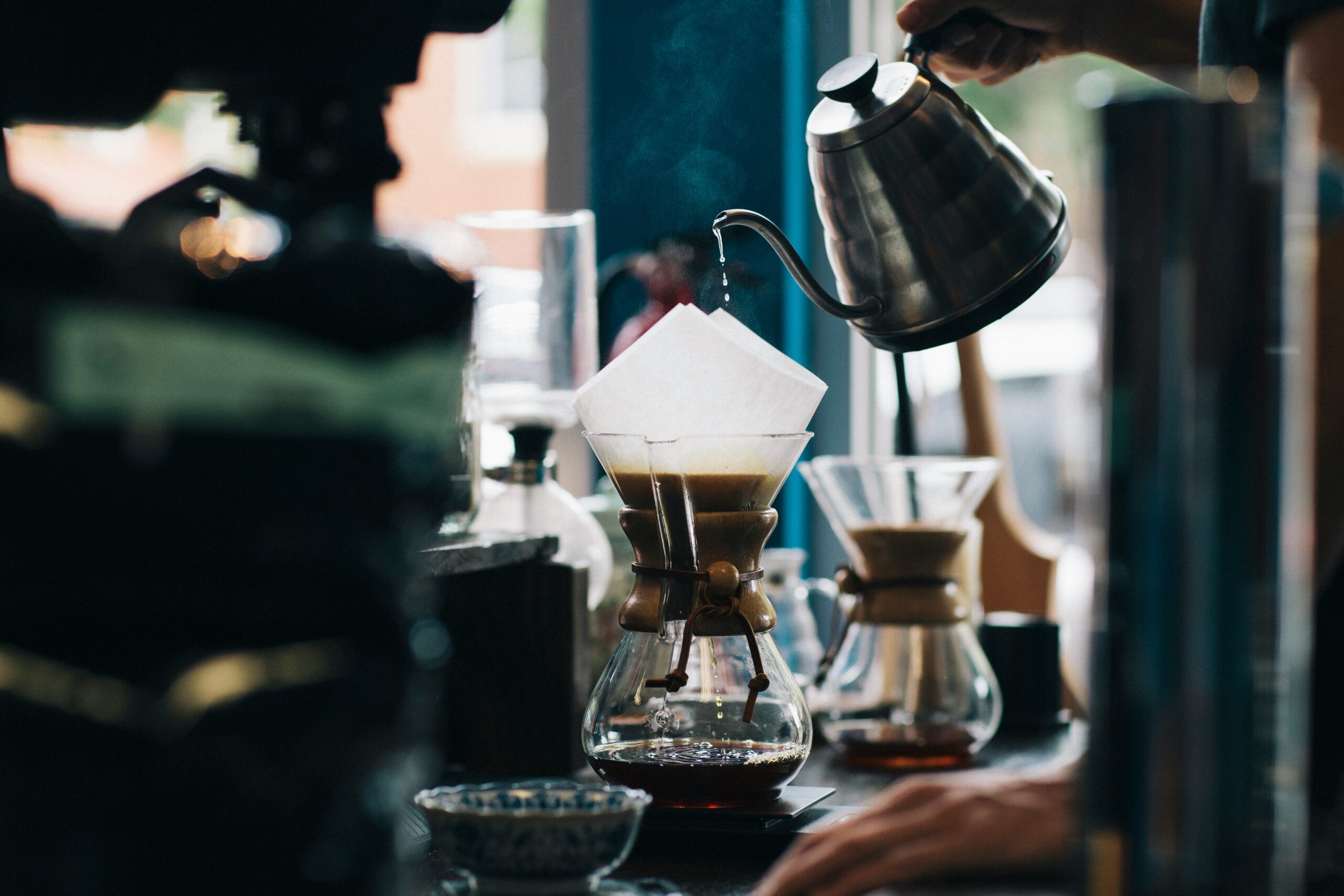 In addition to the main coffee equipment, there are several essential tools and accessories that every coffee shop should have:
In addition to the main coffee equipment, there are several essential tools and accessories that every coffee shop should have:
1. Scales
Accurate weighing of coffee and water is crucial for achieving consistent brews. A digital scale with a precision of at least 0.1 grams is recommended for measuring coffee doses and water ratios.
2. Tamper
A tamper is used to evenly distribute and compress the coffee grounds in the portafilter. It ensures uniform extraction and consistent flavor. Choose a tamper that fits comfortably in your hand and matches the size of your espresso machine’s portafilter.
3. Knock Box
A knock box is used to dispose of used coffee grounds. It should be sturdy, easy to clean, and large enough to accommodate the volume of coffee you’ll be brewing.
4. Milk Pitchers
If you’ll be serving milk-based drinks, having a range of milk pitchers in different sizes is essential. Opt for stainless steel pitchers with a well-designed spout for easy pouring and latte art.
5. Thermometer
A thermometer is useful for monitoring water temperature during brewing. It ensures that your coffee is brewed at the optimal temperature for extraction.
6. Cleaning Tools
Maintaining cleanliness and hygiene in your coffee shop is vital. Invest in brushes, cloths, and cleaning solutions specifically designed for coffee equipment to keep your machines and accessories in top condition.
Having the right tools and accessories not only improves the efficiency of your coffee shop but also enhances the overall coffee experience for your customers.
Factors to Consider When Purchasing Coffee Equipment
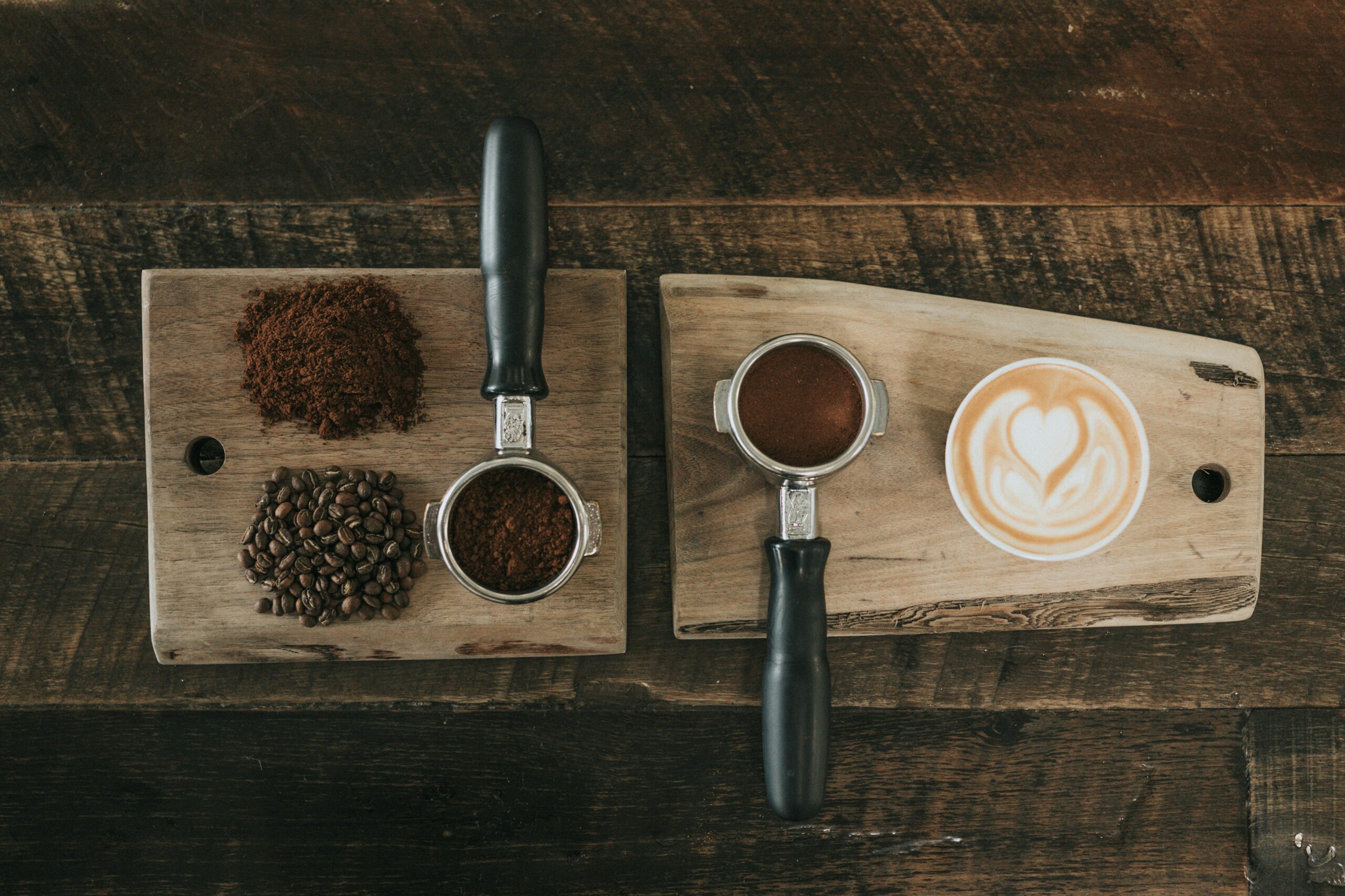 When purchasing coffee equipment for your shop, there are several factors to consider:
When purchasing coffee equipment for your shop, there are several factors to consider:
1. Budget
Set a realistic budget for your coffee equipment. Consider both the initial investment and the long-term costs, including maintenance, repairs, and upgrades. Investing a significant amount upfront in high-quality products can be a wise decision, as it lays the foundation for maintaining consistent quality and building a solid reputation over time. This approach can lead to long-term stability and success.
2. Volume and Demand
Assess the volume of coffee you expect to sell and choose equipment that can handle your anticipated demand. Consider factors such as the number of customers, peak hours, and potential growth.
3. Size and Space
Measure your available space and choose equipment that fits comfortably without overcrowding your coffee shop. Consider the layout and workflow of your shop to optimize efficiency.
4. Brand Reputation and Support
Research different brands and choose equipment from reputable manufacturers with good customer support. Read reviews and seek recommendations from other coffee shop owners.
5. Longevity and Durability
Invest in equipment that is built to last. Look for machines and accessories made from high-quality materials and with a reputation for durability.
By considering these factors, you can make informed decisions and choose equipment that meets your specific needs and ensures the long-term success of your coffee shop.
Maintenance and Cleaning Tips for Coffee Equipment
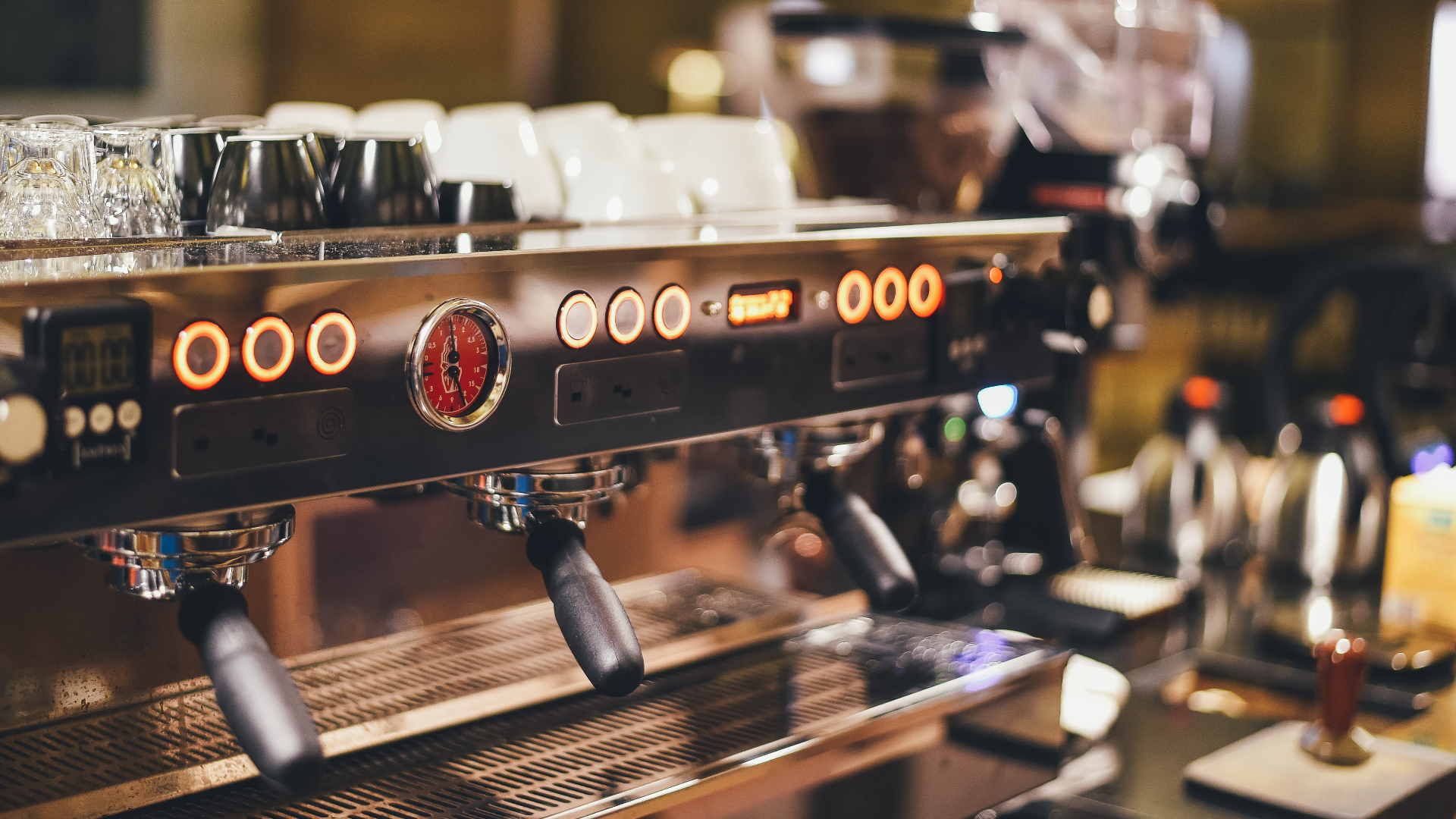
Proper maintenance and cleaning of your coffee equipment are essential for its longevity and performance. Here are some tips to keep your equipment in top shape:
1. Follow the Manufacturer’s Instructions
Read and follow the manufacturer’s instructions for cleaning and maintenance. Each machine may have specific requirements, so it’s important to understand and adhere to them.
2. Daily Cleaning Routine
Establish a daily cleaning routine to remove coffee grounds, milk residue, and any other buildup. Wipe down surfaces, clean steam wands, and flush group heads regularly.
3. Backflushing
Backflushing is a process that cleans the group heads and removes any coffee oils that accumulate over time. This should be done regularly to maintain the quality of your espresso shots.
4. Descaling
Descaling removes mineral buildup in your espresso machine and prevents clogs. Follow the manufacturer’s instructions for descaling frequency and use a suitable descaling solution.
5. Grinder Maintenance
Clean your coffee grinder regularly to prevent stale coffee grounds and maintain grind consistency. Remove burrs for deep cleaning and calibration if necessary.
By following these maintenance and cleaning tips, you can extend the lifespan of your coffee equipment and ensure that it consistently produces high-quality coffee.
Our range of coffee equipment comes with a two-year warranty, which can be further extended through additional warranty agreements. Schedule your complimentary consultation today to discover custom solutions designed specifically for your needs!
Conclusion and Final Thoughts on Building Your Coffee Shop
Congratulations! You’ve reached the end of our beginner’s guide to building your coffee shop. We’ve covered the essential coffee equipment, brewing methods, tools, and accessories you need to create a successful coffee shop.
Remember, investing in high-quality coffee equipment is an investment in the satisfaction of your customers. Take the time to research and choose equipment that suits your needs and budget. Regular maintenance and cleaning will keep your equipment in top shape and ensure the longevity of your investment.
Building a coffee shop is an exciting journey that requires passion, dedication, and a love for coffee. With the right equipment and a commitment to delivering exceptional coffee, you can create a memorable coffee experience that keeps customers coming back for more.
Thank you for joining us on this coffee equipment adventure. We wish you the best of luck in building your coffee shop and making your mark in the world of specialty coffee. Cheers to your coffee shop success!
